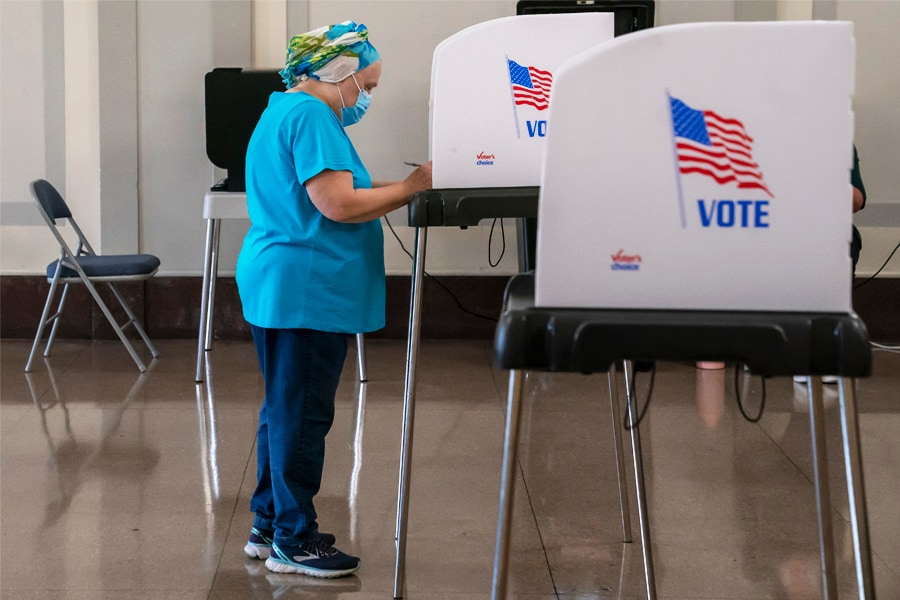
Google finds 'inoculating' people against misinformation helps blunt its power
The researchers found that psychologically "inoculating" internet users against lies and conspiracy theories — by preemptively showing them videos about the tactics behind misinformation — made people more skeptical of falsehoods afterward
 According to researchers of a paper recently published in a science journal, psychologically “inoculating” internet users against lies and conspiracy theories make people more skeptical of falsehoods afterward. Image: Nathan Howard/Getty Images
According to researchers of a paper recently published in a science journal, psychologically “inoculating” internet users against lies and conspiracy theories make people more skeptical of falsehoods afterward. Image: Nathan Howard/Getty Images
In the fight against online misinformation, falsehoods have key advantages: They crop up fast and spread at the speed of electrons, and there is a lag period before fact-checkers can debunk them.
So researchers at Google, the University of Cambridge and the University of Bristol tested a different approach that tries to undermine misinformation before people see it. They call it “pre-bunking.”
The researchers found that psychologically “inoculating” internet users against lies and conspiracy theories — by preemptively showing them videos about the tactics behind misinformation — made people more skeptical of falsehoods afterward, according to an academic paper published in the journal Science Advances on Wednesday. But effective educational tools still may not be enough to reach people with hardened political beliefs, the researchers found.
Since Russia spread disinformation on Facebook during the 2016 election, major technology companies have struggled to balance concerns about censorship with fighting online lies and conspiracy theories. Despite an array of attempts by the companies to address the problem, it is still largely up to users to differentiate between fact and fiction.
The strategies and tools being deployed during the midterm vote in the U.S. this year by Facebook, TikTok and other companies often resemble tactics developed to deal with misinformation in past elections: partnerships with fact-checking groups, warning labels, portals with vetted explainers as well as post removal and user bans.
©2019 New York Times News Service







